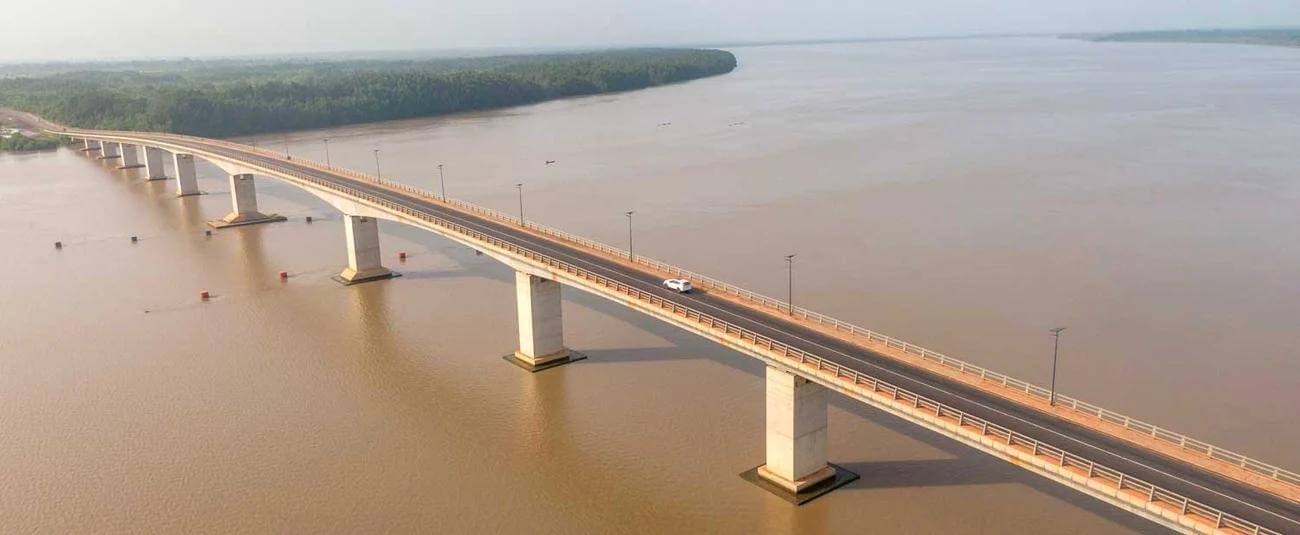
Our Projects are
Transforming African Trade
Quick Contacts
2nd Floor, Fidelity Insurance Centre Waiyaki Way, Westlands

Africa’s significant road infrastructure deficit creates increased production and transaction costs that must be addressed to scale opportunities envisaged under the Africa Continental Free Trade Area, a new report has found.
The report, called Cross-Border Road Corridors Expanding Market Access in Africa and Nurturing Continental Integration notes that while roads are the primary mode of transport, carrying 80 percent of goods and 90 percent of passenger traffic, only 43 percent of Africa’s main population have access to an all-season road.
“Just 53 percent of roads on the continent are paved, isolating people from access to basic services, including healthcare, education, trade hubs and economic opportunities,” according to the publication, released at a special session of the Africa Investment Forum 2023 Market Days taking place in Marrakech, Morocco.
The session, titled Regional Corridors: Quest to Integrate Africa, featured a panel discussion on the strategic importance of regional corridors in connecting Africa. Panelists included government representatives, regional economic communities, development partners and private sector service providers.
Opening the session, African Development Bank President, Dr Akinwumi A. Adesina urged collaborative efforts to fast-track the integration of African economies, lower transport costs, connect landlocked countries to coastal countries, and improve regional trade and competitiveness.
“That is the Africa we want: a fully interconnected Africa, using regional corridor infrastructure and innovative regional financing instruments, to unleash economic opportunities and assure competitiveness of national and regional value chains. A well-connected Africa will be a more competitive Africa.”
He intimated that the Africa Investment Forum will dedicate a special board room annually for regional corridors to foster greater collaboration, co-financing and faster development of strategic corridors.
Dr Adesina suggested five priority areas to fully optimize the benefits of the developing regional corridors across Africa. These include dedicating pooled financing facilities to corridor projects; building special industrial zones around the corridors to optimize existing infrastructure; adopting a systematic approach and platform to syndicate around the development of strategic regional corridors.
He said the development of regional corridors should be complemented with one-stop border posts to facilitate trade and reduce travel times on the corridors. He proposed concessional financing, such as the African Development Fund, which offers low-income countries unmatched resources to commit to developing regional corridors.
He reaffirmed the African Development Bank’s commitment to infrastructure development, saying the institution invested more than $44 billion over the last seven years in developing road corridors, ports, railways and expanding power pools to interlink countries and boost trade.
In the latest round of commitments, Dr Adesina said the Bank would contribute $500 million to develop the strategic Lobito Corridor to connect Angola, Zambia, and the Democratic Republic of the Congo, connecting the mines to the port in Angola.
Other projects include the $20 billion Desert-to-Power initiative to develop 10 GW of solar power across 11 countries of the Sahel zone; the Mozambique-Beira corridor transport system; the $259 Kazungula bridge, which has already been commissioned; the $2.7 billion Nacala rail and port project in Mozambique, and the Lagos-Abidjan highway, which secured investment interest of $15.2 billion at the Africa Investment Forum last year.
As of 2022, the African Development Bank had financed 25 transport corridors, constructed over 18,000 km of roads, 27 border posts and 16 bridges for $13.5 billion.
Danae Pauli, Senior Advisor for the US-led Partnership for Global Infrastructure and Investment (PGII), a lead partner in the Lobito Corridor, said her government’s involvement in the project reflects its commitment to partnering with African nations and institutions and not relying just on traditional aid for Africa.
“Our goal is not rail for the sake of rail, but to catalyze investments across multiple sectors to spur economic growth and improve lives,” she said, projecting that the project could be operational by 2028.
Read original article
Disclaimer: The views and opinions expressed in this article are those of the authors and do not necessarily reflect the official policy or position of TradeMark Africa.